News & Media
"I want to lead a university that honours and humanises people"
The new Principal and Vice-Chancellor (VC) of Unisa, Prof Puleng LenkaBula, is hitting the ground running. She sat down with a Unisa journalist for an exclusive one-on-one, and we are honoured to introduce you to the first black woman to steer Unisa in the institution's 148 years of existence.
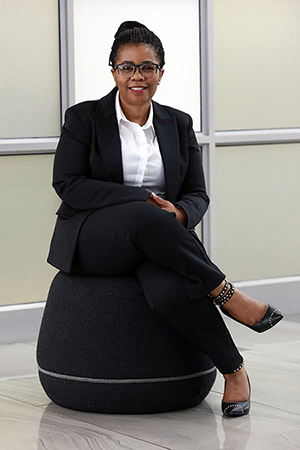
Prof Puleng LenkaBula, Principal and Vice-Chancellor of Unisa
HERstorical moment
Sharing her sentiments about this moment in the history of the institution, LenkaBula says: "I’m appreciative of being appointed as the third Vice-Chancellor of Unisa post-1994 and the dawn of democracy of South Africa. I think it is an important HERstorical moment, not a HIStorical moment." She chuckles as she makes the emphasis. She adds that this is particularly so because universities in South Africa have not had many women academics leading them. "The normative practice has often been finding leadership from male leaders," she explains. "There is nothing wrong with men leading institutions, but there's something wrong if the leadership is fully and wholly masculine. The diversities of leadership are always important as they enable institutions to focus on various issues and to attend to both curriculum and co-curricular issues."
LenkaBula emphasises that she appreciates being the first black woman appointed as VC at such an august institution as Unisa. "The global knowledge arena does not have many women," she says, "let alone black women in leading positions. For me, this appointment validates the sentiments of black girls and black boys who might not have had the confidence that they could be able to assume leadership positions in different sectors. They might be inspired to know that it is possible to become the leader of a university of our size and impact."
Training and career highlights
LenkaBula brings with her the competencies of an ethicist who is trained in a multidisciplinary discipline that engages the multiplicities of knowledge systems as well as the multiplicities of professions. While she demonstrates leadership in the knowledge of ethics as a discipline, she has full recognition of how disciplines, faculties, colleges and knowledge systems intersect in the local, continental and global arena.
Her extensive managerial experience includes, among other positions, serving as Vice-Rector of Institutional Change, Student Affairs, and Community Engagement at the University of the Free State (UFS). Prior to joining UFS, she was the Executive Dean of Student Affairs at the University of the Witwatersrand.
The VC has also been invited to multiple international academic platforms to deliver presentations. Key among these are the World Council of Churches Central Committee, the European Commission Diaspora, and the UN Commission on the Status of Women.
Our humanity is what brings us together
Explaining her vision as VC, LenkaBula says she intends to ensure that Unisa does not only become a centre of excellence, success and opportunities for the marginalised, but also a lever of optimum participation in the global knowledge arena with impact. "This impact," she says, "should spread to the local context and the continent, allowing the country and Africa to, without hesitation, become competitive in the global landscape. But this is just the first of my commitments. The second is that I want to lead a university that honours and humanises people, and prioritises human dignity as an imperative. It should be a university that recognises that although we are human and we have varied phenotypes, heights, bodies, textures of abilities and disabilities and more, our humanity is what brings us together."
The VC says that questions of social cohesion, social capital and social justice should be based on these values. "This means, for example, that students, staff, or stakeholders who live with disabilities must find presence, resonance, and support so that they can optimise their talent and succeed."
She adds: "It also means that we have to be sensitive to the fact that there are people who don’t conform to traditional genders. These non-conforming individuals, like gays, lesbians, and bisexual and asexual people, live sexualities that may not be in the mainstream. This means that even our language must be inclusive and honour their humanity because we have learned from our birthdate that to debase each other's humanity is to undermine the integrity of life, and that is something I am not apologetic about."
Unisa reimagined
LenkaBula comes in at a time when Unisa is going through a review instituted by the Minister of Higher Education, Science and Innovation, Dr Blade Nzimande. Mindful of the task ahead, she is confident that Unisa and its staff have the capacity to reclaim the institution as an innovative leader in distance and open education. "However," she says, "if we are going to succeed, students, staff and stakeholders must become partners in the reimagination of Unisa as a leader in ODeL."
"My vision of Unisa is a very unique set that contributes to the development of South Africa by aligning ourselves with some of the aspirations of the National Development Plan (NDP), but not only the NDP," she says. "When you live in a country where youth and young adults might fall through the cracks because of their economic condition, we must invest in solutions to these critical or grand challenges of our times."
The VC underscores the urgent need to become student-centric. "We must be attentive to the kind of students we should be producing," she says, "particularly in the aftermath of Covid-19, as well as the changes that the fourth industrial revolution is imposing on systems, organisations and higher education. My vision is to ensure that we have a socially just university that considers issues of profitability and also of responsibility, issues of ethics, and moral agency and initiative. We should therefore be a university that is at the centre of solutions to problems, whatever solutions it may be, whether it is of the pandemic, whether it’s of economic systems or whether those of climatic changes or ecological degradation."
At a time of unprecedented transition in academia, just as in any industry because of the pandemic, institutions of higher education have been faced with a number of challenges that call for a shift in the manner in which they conduct their business. Asked how she plans to address some of these systematic challenges, LenkaBula stresses that universities must be centres of solutions because they have society’s best minds. "But if the best minds are not for a cause, then they are rendered marginal," she says.
Reinvent, reshape, regenerate
The pandemic has caused a shift that will soon see Unisa having to reclaim space in academia, and the ODeL space specifically. Traditional universities have begun introducing online degrees, and this calls for an urgent shift in the manner that Unisa staff perform their duties. "It can no longer be business as usual," LenkaBula says. "My priority is for Unisa to recognise that it’s no longer the only player in this arena. The first thing I said when I met the vice-principals and deans was that we should not be complacent because complacency has led to multiplicities of businesses folding. We as Unisa have to reinvent, reshape and regenerate ourselves."
LenkaBula explains further that the threats were already evident, but that Covid-19 accelerated competition. "Therefore," she says, "Unisa needs to identify its areas of excellence and project them more. It is going to be important that staff take their work seriously and respond to their obligations. If they don’t, opportunities to look elsewhere are available for them to release themselves from their responsibilities."
The work begins
LenkaBula says that Unisa is the cradle of the higher education system in South Africa. "Therefore, the idea of being an innovative institution is something that we have to embrace," she concludes. "We need to reignite our commitment to ensure that Unisa reclaims its place at the top tier of tertiary education institutions in South Africa - and on the continent."
Prof Puleng LenkaBula speaks to students
* By Tshimangadzo Mphaphuli, Senior Journalist, Department of Institutional Advancement
Publish date: 2021-02-24 00:00:00.0

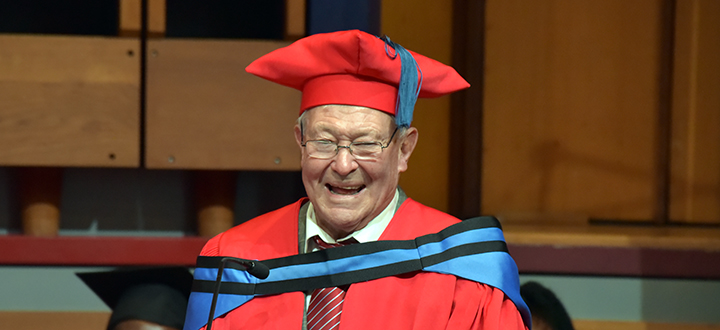 Community champion and agricultural entrepreneur extraordinaire honoured by Unisa
Community champion and agricultural entrepreneur extraordinaire honoured by Unisa
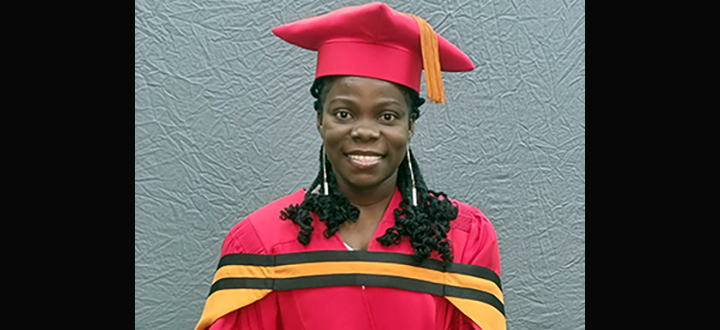 Ghanaian-born Swede earns PhD in Information Sciences from Unisa
Ghanaian-born Swede earns PhD in Information Sciences from Unisa
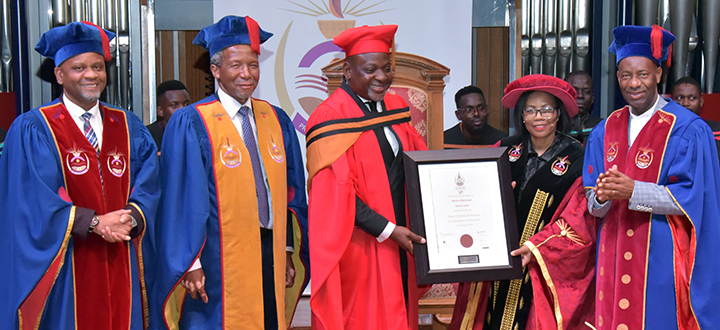 Unisa awards honorary doctorate to exemplary philanthropist and entrepreneur Collen Tshifhiwa Mashawana
Unisa awards honorary doctorate to exemplary philanthropist and entrepreneur Collen Tshifhiwa Mashawana
 Inhlanyelo Hub explores financing and sustainability at the International Conference on Business Incubation
Inhlanyelo Hub explores financing and sustainability at the International Conference on Business Incubation
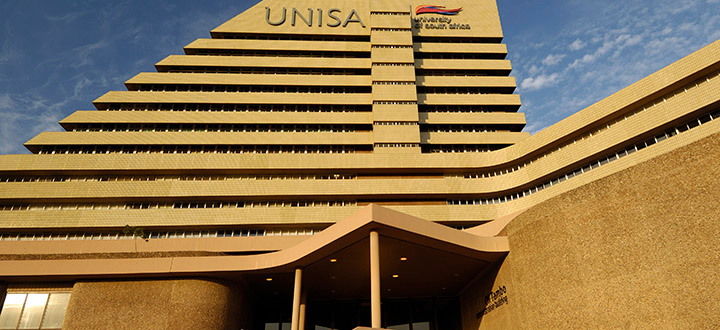 Unisa remains anchored among the waves
Unisa remains anchored among the waves